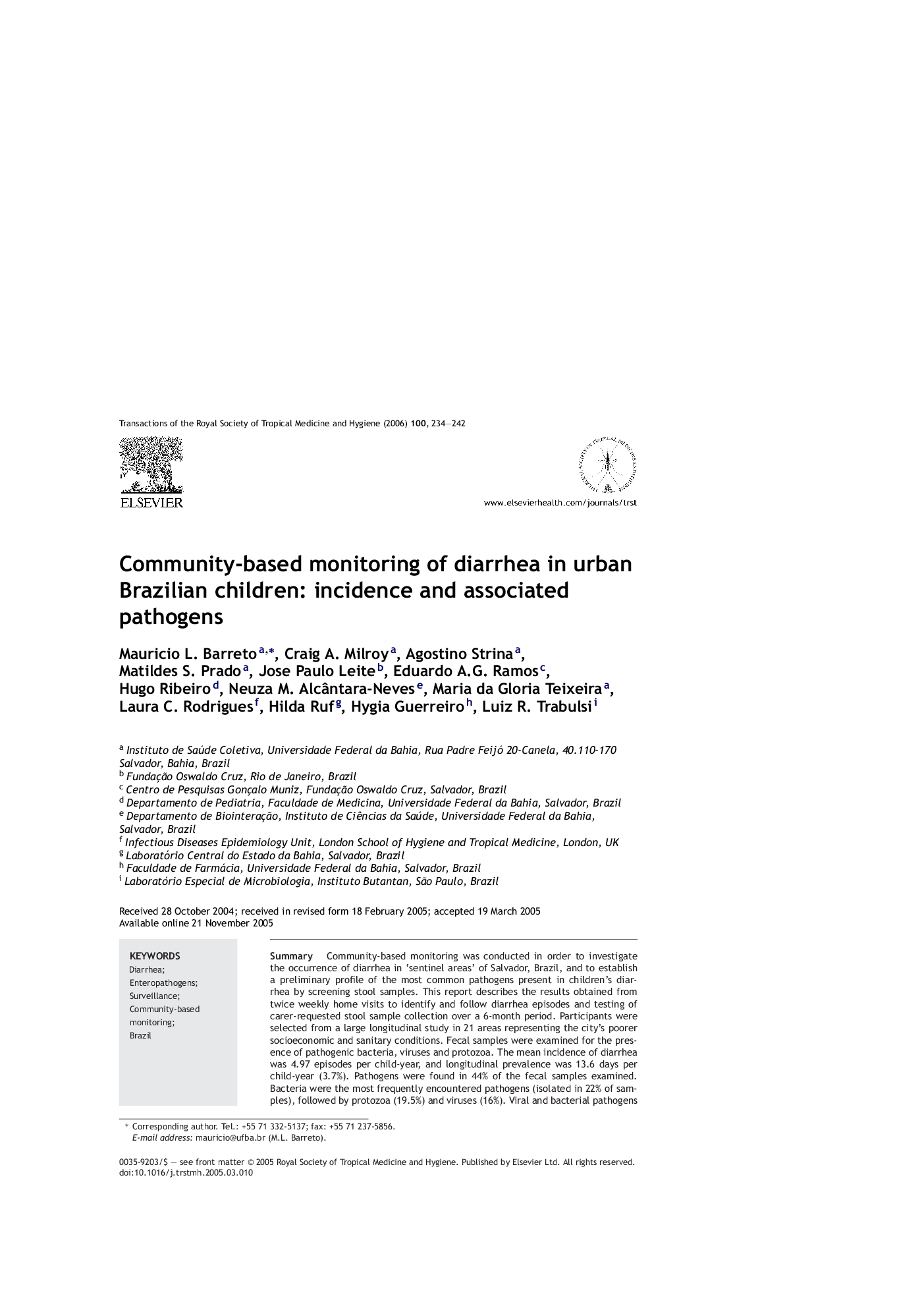| Article ID | Journal | Published Year | Pages | File Type |
|---|---|---|---|---|
| 3421374 | Transactions of the Royal Society of Tropical Medicine and Hygiene | 2006 | 9 Pages |
Abstract
Community-based monitoring was conducted in order to investigate the occurrence of diarrhea in 'sentinel areas' of Salvador, Brazil, and to establish a preliminary profile of the most common pathogens present in children's diarrhea by screening stool samples. This report describes the results obtained from twice weekly home visits to identify and follow diarrhea episodes and testing of carer-requested stool sample collection over a 6-month period. Participants were selected from a large longitudinal study in 21 areas representing the city's poorer socioeconomic and sanitary conditions. Fecal samples were examined for the presence of pathogenic bacteria, viruses and protozoa. The mean incidence of diarrhea was 4.97 episodes per child-year, and longitudinal prevalence was 13.6 days per child-year (3.7%). Pathogens were found in 44% of the fecal samples examined. Bacteria were the most frequently encountered pathogens (isolated in 22% of samples), followed by protozoa (19.5%) and viruses (16%). Viral and bacterial pathogens were associated with episodes of severe diarrhea, while viral and protozoan pathogens were associated with longer episodes. The study demonstrated the importance of a public health monitoring system based on 'sentinel areas'.
Related Topics
Life Sciences
Immunology and Microbiology
Applied Microbiology and Biotechnology
Authors
Mauricio L. Barreto, Craig A. Milroy, Agostino Strina, Matildes S. Prado, Jose Paulo Leite, Eduardo A.G. Ramos, Hugo Ribeiro, Neuza M. Alcântara-Neves, Maria da Gloria Teixeira, Laura C. Rodrigues, Hilda Ruf, Hygia Guerreiro, Luiz R. Trabulsi,
